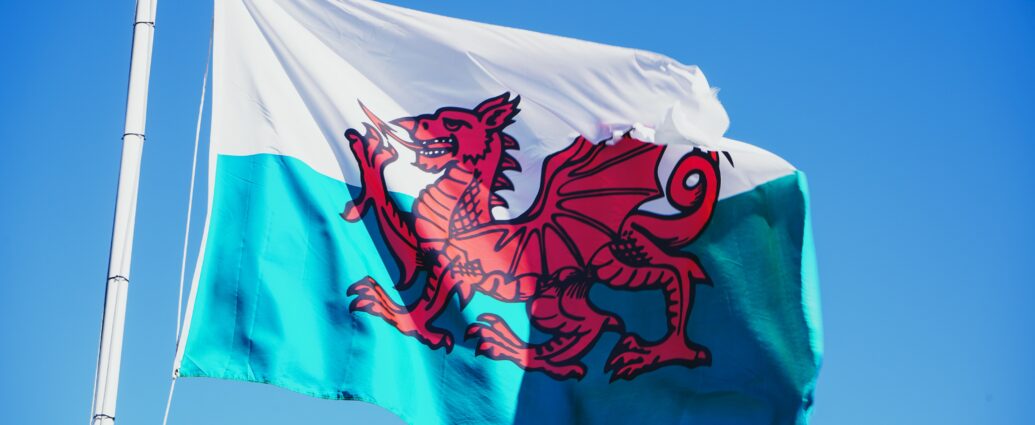Rachel Maguire
Some things have been part of our culture for so long that it’s easy not to question the significance they hold, or how they could be viewed as insensitive or insulting. For instance, the title of Prince of Wales, which had been held by King Charles III for 64 years, and which many of us had known no other individual to hold.
“the title has been held exclusively by Englishmen as a continuing symbol of dominance over Wales”
In his first speech addressing the nation as King Charles III, the King made sure to explicitly declare his son Prince William as the new Prince of Wales. This action has reportedly been received badly by Welsh nationalists and republicans. A petition has already been launched with over 36,000 signatures (at time of writing) and forty six members of the Gwenedd council in North Wales have recently voted for the abolition of the title.

A Turbulent History with Wales
Before the 12th century, the title Prince of Wales referred to native Welsh princes, and in 1137 was also used by Welsh Kings. This changed in the late 13th century following the conquering of Wales by Edward I, who gave the title to his son as an insult to humiliate the recently conquered Welsh. 100 years later, Owain Glyndwr organised a rebellion against Henry IV and reclaimed the title, before later being re-conquered by the English.
Since that point in history, the title has been held exclusively by Englishmen as a continuing symbol of dominance over Wales. To this day, the English “Princes of Wales” have arguably little genuine connection to the country.
“With the death of Queen Elizabeth II, there is a unique opportunity to begin to heal the enduring wounds inflicted on countries around the world as a result of the Royal Family’s continued and historic complicity in racist, colonialist and imperialist actions”
The title remains an insult and a symbol of historical oppression to many in Wales, implying that Wales is still a principality, and undermining its status as a nation and a country. In addition, the title plays absolutely no constitutional role within Wales, which is now a devolved country with a national Parliament (Senedd). Combined, this makes the sudden statement of declaring Prince William the new Prince of Wales all the more jarring, especially as the UK government or the Palace has not confirmed any discussion with the Welsh Senedd over the creation of a new Prince of Wales.
Continuing Colonialism
The Royal Family have already been on the receiving end of much criticism of their continued links to colonialism and imperialism – including calls for slavery reparations, enduring fury over the Windrush scandal and an argued tone-deaf tour of the Caribbean by William and Kate. With the death of Queen Elizabeth II, there is a unique opportunity to begin to heal the enduring wounds inflicted on countries around the world as a result of the Royal Family’s continued and historic complicity in racist, colonialist and imperialist actions.
“Wales was made a colony following defeat by Edward I, and arguably remains one to this day”
It has been said that Wales was the first colony of English imperialism. A colony is defined as “a country or area controlled politically by a more powerful country that is often faraway”. After King Edward I conquered Wales, he granted parcels of land and colonial towns to his followers, which the Welsh were not permitted to live in, creating an unequal economic and legal relationship between the two countries. As such, Wales was made a colony following defeat by Edward I, and arguably remains one to this day.
This relationship is not clear cut as one of oppressor and oppressed, however, and Wales has certainly played its part in Britain’s terrible legacy of slave trade and Empire. This legacy of imperialism has sadly been exported around the world in the name of Empire and encouraged by rulers and elites whose attitudes continue to perpetuate inequality and violence today.
Complex Dynamics of Inequality with Wales
For a lot of its history, Wales has been seen by the English as inferior, but the industrial revolution began to change attitudes. Through its natural resources, Wales became one of the most important areas for new industry. Wales started to become more prosperous and confident, and also a proud part of the British empire.
However, this period of history also saw some of the most discriminative policies enacted in Wales. During the early 19th Century, the publication of a report into education in Wales (commonly known as The Blue Books) further compounded racist attitudes to the Welsh language and people. The report suggested for instance that “The Welsh language is a vast drawback to Wales and a manifold barrier to the moral progress of the people, it is not easy to overestimate its evil effects.”
The attitude of the British government that English was a superior language used by the educated and upper class, created an atmosphere that made the Welsh turn away from their own language. As this attitude took hold, more people began to see the Welsh language as a problem. This mindset shaped the creation of an education system that was designed to turn Welsh children from their own language and culture.
However, just tarring Wales as an “English colony” can hide the nature of the complicated relationship between England and Wales, which can be understood as a multi-faceted and multi-directional relationship of imperialism, capitalism, and classism, perpetuated by the ruling classes.
An Opportunity for Change?
With King Charles just beginning his time as monarch, there is an opportunity to move forwards and away from mistakes made in the past in the name of the Crown. So much has been overlooked for the sake of Her Majesty while she was alive, but so much is now called into greater scrutiny as a result of her death. This is a natural point in time to review and change aspects that may have gone unquestioned before.
The issue with the title of Prince of Wales is one of historical significance but also of consent. In the reluctance of the Palace to consider and implement change, we see a continuation of the colonial experience of Wales. The waiving of the title Prince of Wales could be seen as a gesture that the tide is changing. But, if the Monarchy cannot begin to change these attitudes towards a country which is a member of the United Kingdom, what can we expect to see towards other countries crying out to us for apologies and reparations?
Featured image courtesy of Catrin Ellis on Unsplash. No changes were made to this image. Image license found here.

